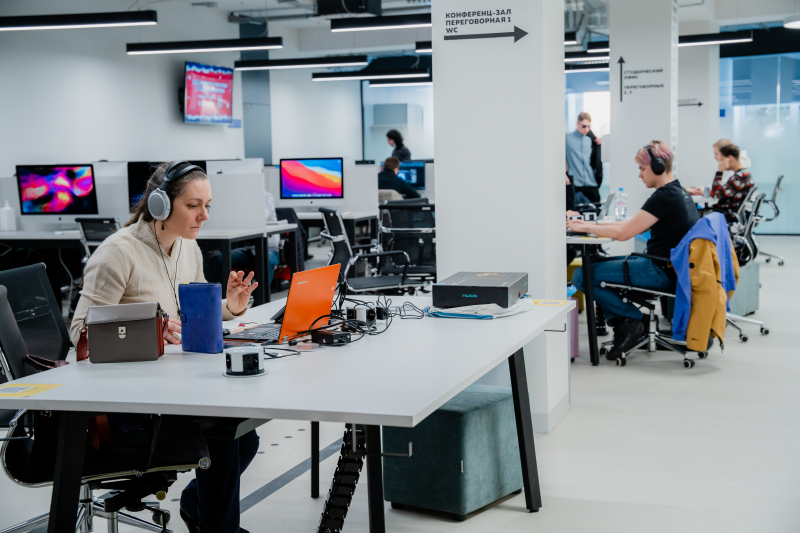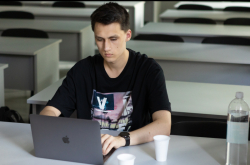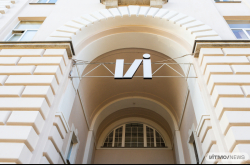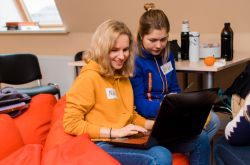AI Alliance Russia was established in late 2019. Among its participants are the Russian Direct Investment Fund and a number of major companies such as VK, MTS, Yandex, Sberbank, and Gazprom Neft. The association’s main task is to accelerate the integration of AI into education, research, and business.
As part of its activities, the alliance collaborates with Russian schools and universities and conducts studies to, among other things, identify the most in-demand AI-related professions among employers. In February 2021, the Russian Ministry of Science and Higher Education granted AI Alliance Russia the right to conduct professional and public accreditation (PPA) of higher education programs and continuous professional development (CPD) programs. The purpose of such activities is to identify the top performers on the educational scene and help universities connect their educational programs with the real economy and the business community.
The accreditation procedure was based on the organization’s own model of core professions and competencies in the field of AI, as well as a methodology devised to assess how well the programs in question correspond to the model. Entries were evaluated by an expert committee that included representatives of Yandex, VK, Sberbank, and Gazprom Neft.
The top choices
As a result, the AI Alliance has granted accreditation to four university programs – one each from the Higher School of Economics and Ural Federal University and two from ITMO University: the Big Data and Machine Learning Master’s program (taught in English) and a Russian-language CPD program on the same subject.
As noted by Alexander Boukhanovsky, the head of the Strong AI in Industry research center at ITMO, artificial intelligence technologies in Russia are being promoted by major businesses, as is seen by AI Alliance Russia’s member list; hence, the inclusion of ITMO University’s programs on the list is a sign of their recognition by potential employers.
“It’s not enough to just name a program using smart words from AI or machine learning. We know that AI is a versatile science that uses a highly diverse algorithmic apparatus: even in Russia, there are many schools of scientific thought that describe themselves as AI-focused. The question remains: does an educational program give students the right skills that are relevant to today’s AI? Will the graduates be able to navigate the field without additional training? This accreditation is an unequivocal sign that the answer to these questions is yes,” he adds.
Alexander Boukhanovsky. Photo by Maria Bakina / Megabyte Media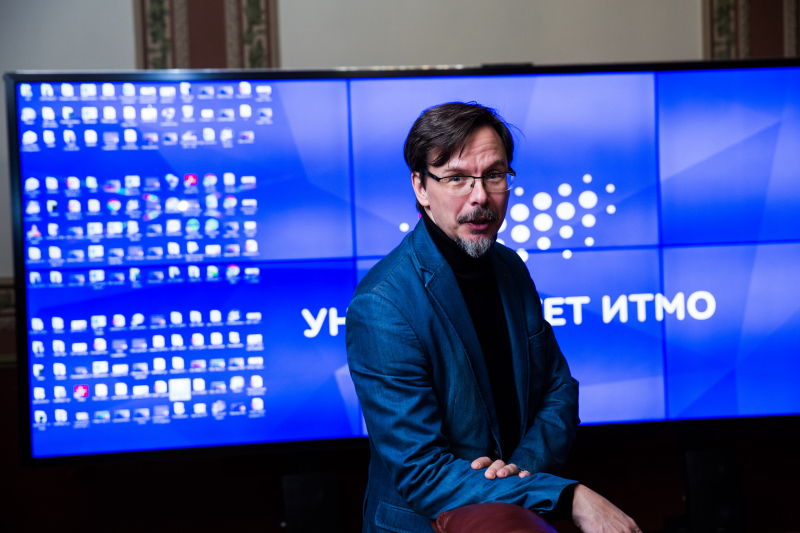
Today, ITMO University’s AI-focused programs are developed with consideration of the Artificial Intelligence federal project. Accreditation is one of its elements. Last October, ITMO University won a grant for the development of the Strong AI in Industry research center. One of the center’s tasks is to develop a scientific methodological foundation on the subject of AI and to integrate it into highly relevant technologies.
According to Alexander Boukhanovsky, all this helps establish a complex system of continuous training for AI specialists at the university.
“We have an ambitious task before us: not to accredit specific programs, but to set up a unified system of continuous training in the field of AI that would accompany specialists throughout their whole time on the labor market. This is a necessary action in today’s reality, as AI technologies develop very quickly and the human resources demand cannot be quelled with only niche specialists. In this context, it’s important to underline that one of the newly-accredited programs is for Master’s students, but the other is a continuous professional development program, aimed precisely at those specialists who are less often the developers and more commonly the customers of AI solutions,” he sums up.
ITMO University is also one of the leaders in the number of publications made at major AI-themed international conferences (A*-tier conferences). According to the Analytical Center for the Government of the Russian Federation, researchers from the St. Petersburg-based university claim authorship over 15% of all such publications produced by Russian specialists in 2021.
